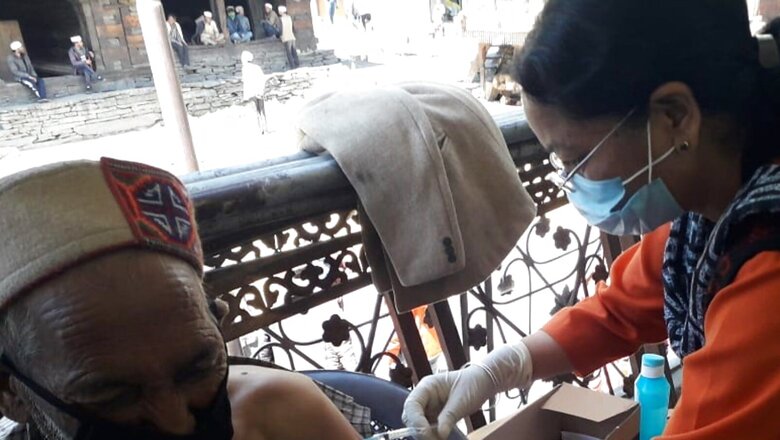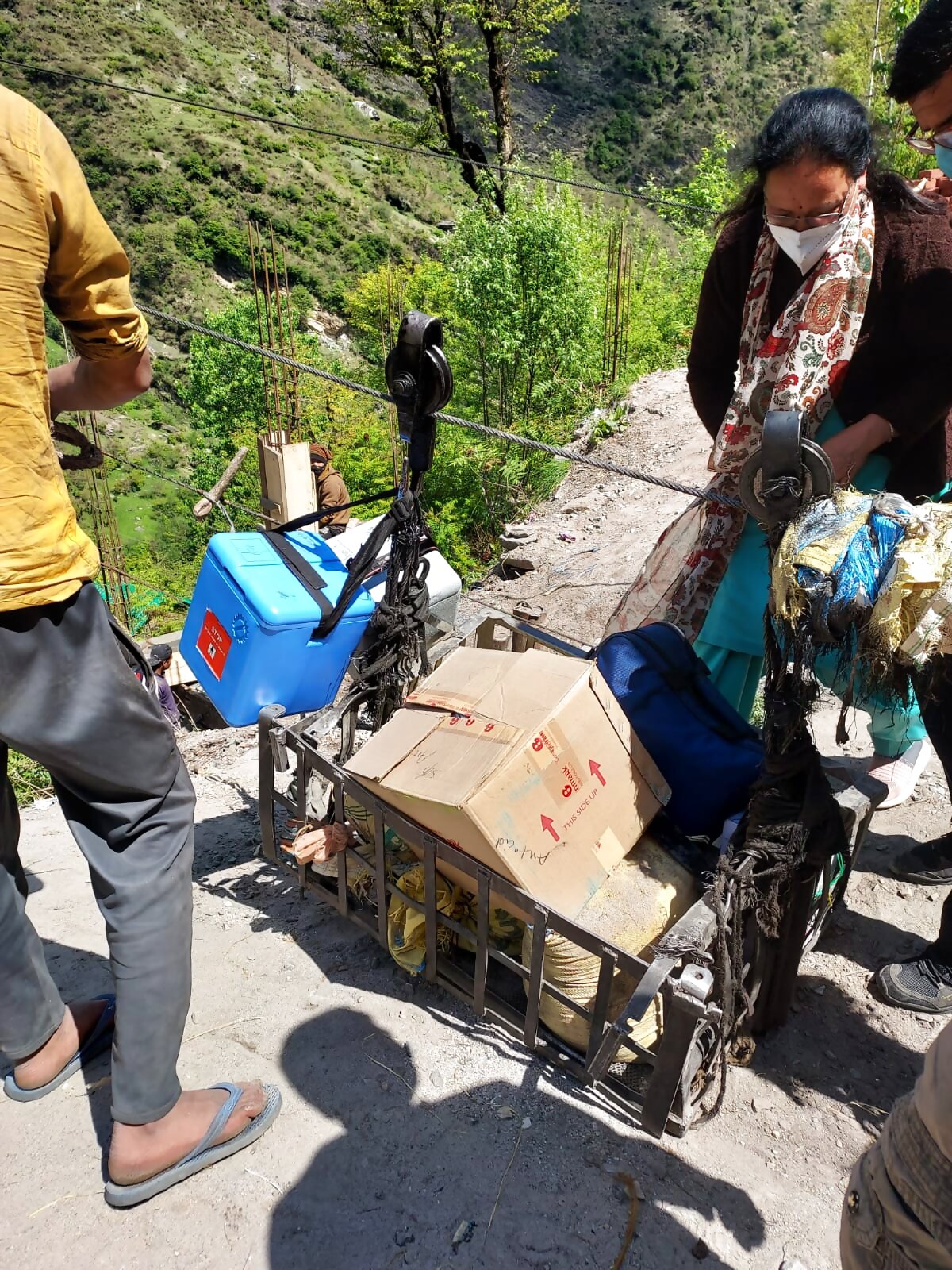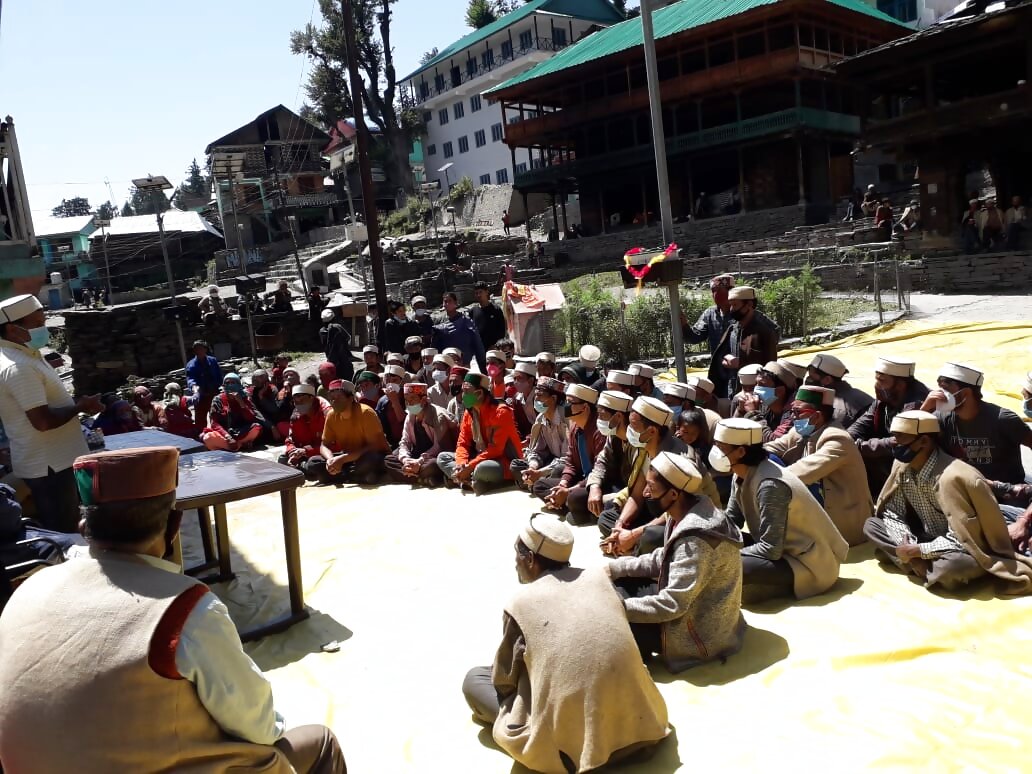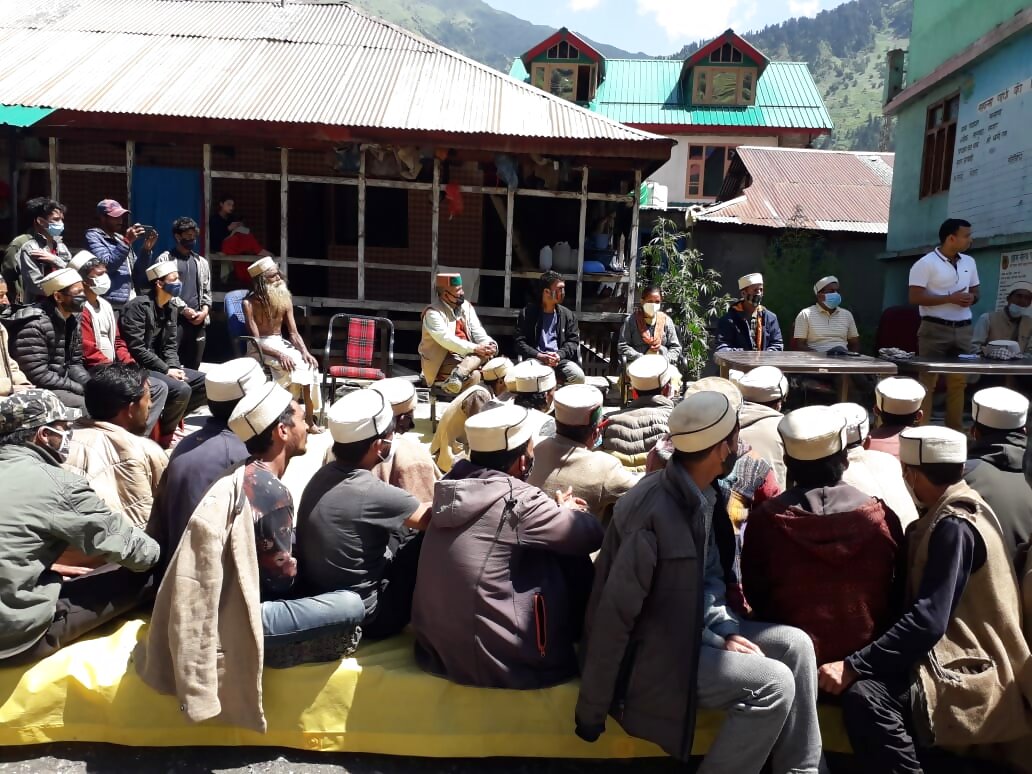
views
It was not the heavy waterfalls, deep valleys, steep cliffs and narrow treks that deterred the government of Himachal Pradesh from vaccinating the population of Malana village against Covid-19. It was their supreme deity — Jamlu Devta.
A small village in Himachal’s Parvati Valley with an approximate population of 1,000 adults, Malana is notoriously known among travellers for producing hashish or cannabis resin that is cultivated in the region.
Considered the world’s oldest democracy by the locals, Malana village had become a roadblock for the state government in achieving 100% vaccination target for the first dose.
Malanis consider themselves “pure” and hence, they believe that an outsider’s touch will make them “impure”.

Known as the village of taboos, the locals here do not allow outsiders to touch anyone or anything within the village. Tourists have to pay a fine if they end up touching anything, even the walls at some places.
“Various development works like construction of school building, roads etc are also started by the department only after permission of the local deity Jamlu Rishi. However, convincing them to take the vaccine shots was a challenge as they had lot of reservations about the vaccine,” Ashutosh Garg, deputy commissioner of Kullu district, told News18.com.
The officers reached the village after a three-hour trek. All decisions in the village are taken by the “kardaars” or representatives of the deity.

This was not the first time that state officials went to take concurrence of the deity, but it was far more difficult than the previous stints.
What Were the Concerns of Malanis?
In a two-hour-long discussion with the “pujaris” (priests) — a council of 11 members considered to be representatives of the spiritual deity — the health teams faced several questions.
“People believe that their village is protected by Jamlu Rishi. While their deity (for us at least), is a non-living being, we can only speculate on how these representatives read and interpret his decisions.”
The discussion with the team of state officials took place in the middle of the village. Their first concern was that the Covid-19 vaccine will make them “impure”.
Garg pointed out that it is very difficult to understand their inter-personal discussion. “With us, they speak in Hindi. However, their local language is Kanashi, which is not spoken anywhere else in the world and is incomprehensible by outsiders. You don’t understand what they are saying to each other.”
The discussion was led by pujaris who feared the vaccine would make them “impure”.
Another concern was the possible side-effects of the vaccines. “They were concerned about any ‘disabilities’ that the vaccines could cause. They are fiercely protective about their lineage.”
They were also apprehensive to accept products from the outside world. “Their lifestyle and culture doesn’t allow them to seek or use things on their body manufactured by the outside world,” he said.
How Were These Concerns Answered?
Garg believes that they partly won the battle when the team of all senior officers landed in the village. “It made a symbolic impact. All senior officials went to meet them and we all were fully vaccinated. This had a positive impact.”

While the team of officers shared various data points, case studies and research papers to show the benefits of taking Covid-19 vaccines, they also conveyed that at some point, the government of India may make it mandatory for everyone to be fully vaccinated.
“We told them that vaccines are safe and don’t have any major side-effects. And if tomorrow, the government of India starts doling out certain benefits only for people who have received Covid-19 vaccination, they will regret it. These benefits may include entry at certain places, freedom to roam out freely and benefits in government schemes.”
The final point that had probably the biggest impact was the safety of both tourists and villagers.
“Malana earns a decent chunk of revenue from tourism,” Garg said. “The locals depend on tourists for income generation and livelihood. They themselves had closed down the village completely once cases were detected in the village in earlier waves. We told them that they can resume the entry of foreigners by vaccinating themselves. Neither will the tourists hesitate coming to the village nor will the locals be scared of catching Covid-19 from foreigners.”
“At last, we were given permission to begin the drive,” Garg said.
The officials completed the vaccination drive in just three days. “In fact, we have already vaccinated around 200 people with the second dose as well.”
Read all the Latest News , Breaking News and Ukraine-Russia War Live Updates here.














Comments
0 comment